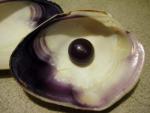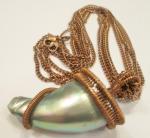Journey of a Canadian Oyster
Journey of a Canadian Oyster
It’s not yet 10 in the morning when Jules Frank shucks a Black Pearl oyster, tilts her head back and slides it into her mouth. “You want one?” She asks me, digging around in the pile on the sorting table in front of her. She inserts her shucking knife into the hinge of a plump oyster with purple black frills, a signature of the Pacific oyster. Loosening the meat, Frank flips it over, so the underside is perfectly presented on the half shell. “A little shucker’s trick,” she winks.
The taste raises the bar for any oyster I will ever eat again. Clear and clean, sweet yet salty, it boasts the perfect ratio of liquor to meat. “That’s a number one Black Pearl right there,” she says. “Nice round shape, fat little belly, hard shell.” This is the kind of oyster Frank and her partner Ian Mowat, members of Out Landish Shellfish Guild and Oceanwise partners, hope most of the 25,000 dozen oysters from this year’s harvest will be.
The Black Pearl is a trademark of the guild and a product that’s in high demand at restaurants and seafood shops across the country. Joe Beef in Montreal was one of their first customers. And it’s why I’ve come by plane, car, two ferries and a boat to Quadra Island, BC, to see these tastemakers in action.
They’ve invited my photographer Greg Miller and me to spend the day touring two of the guild’s farms; a deep-water lease where “pampered oysters” are raised and a beach lease. “You can really tell the difference between a beach oyster and a tray oyster,” says Mowat. “They want the beach stuff out east, but it’s harder to grow.” It takes three to four years for a beach oyster to reach market size, while a tray oyster from the deep-water lease is ready in two.
See lots of great photos and read entire article about journey of Canadian oyster here.
Join in and write your own page! It's easy to do. How? Simply click here to return to Mollusc News.



